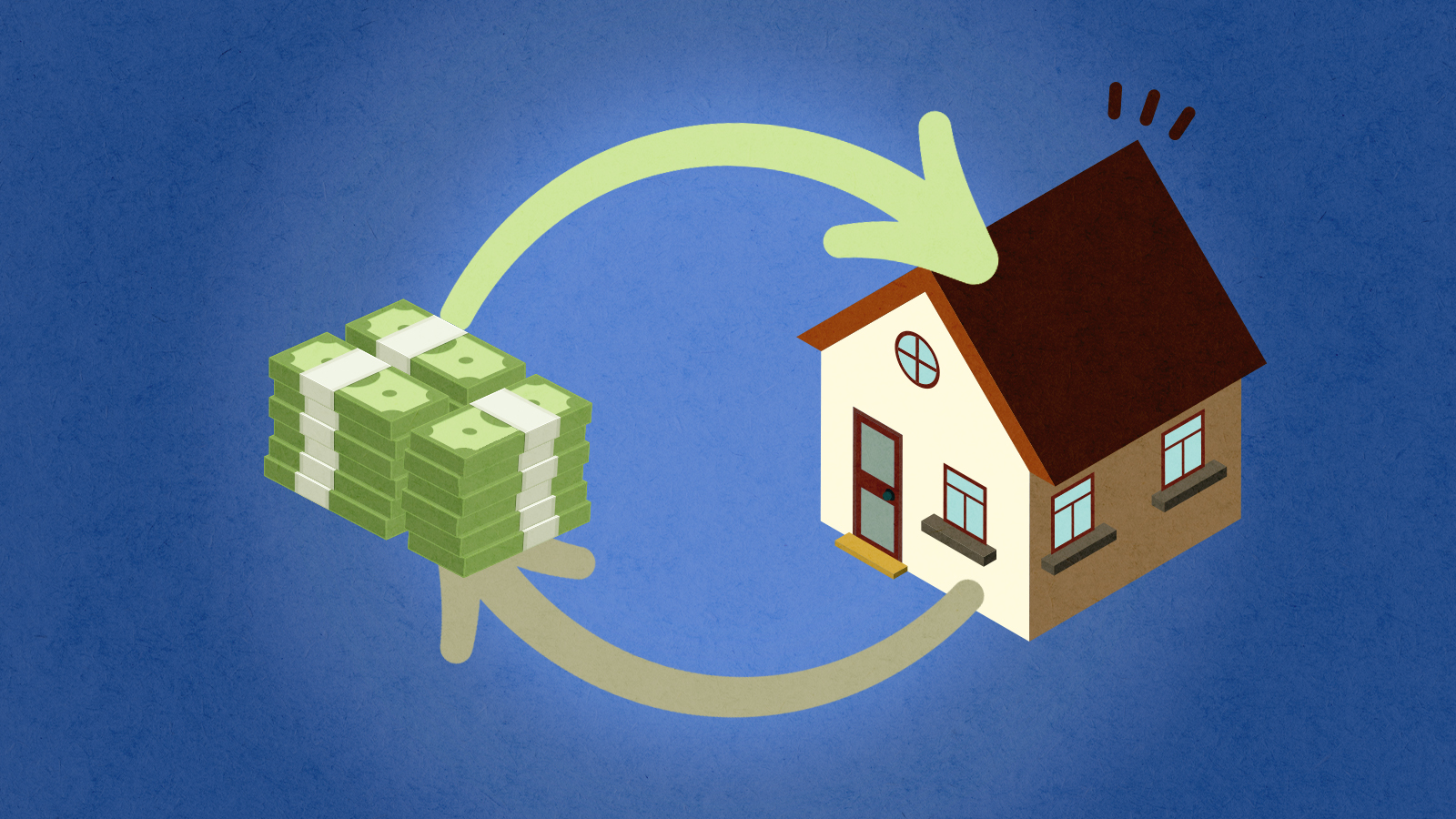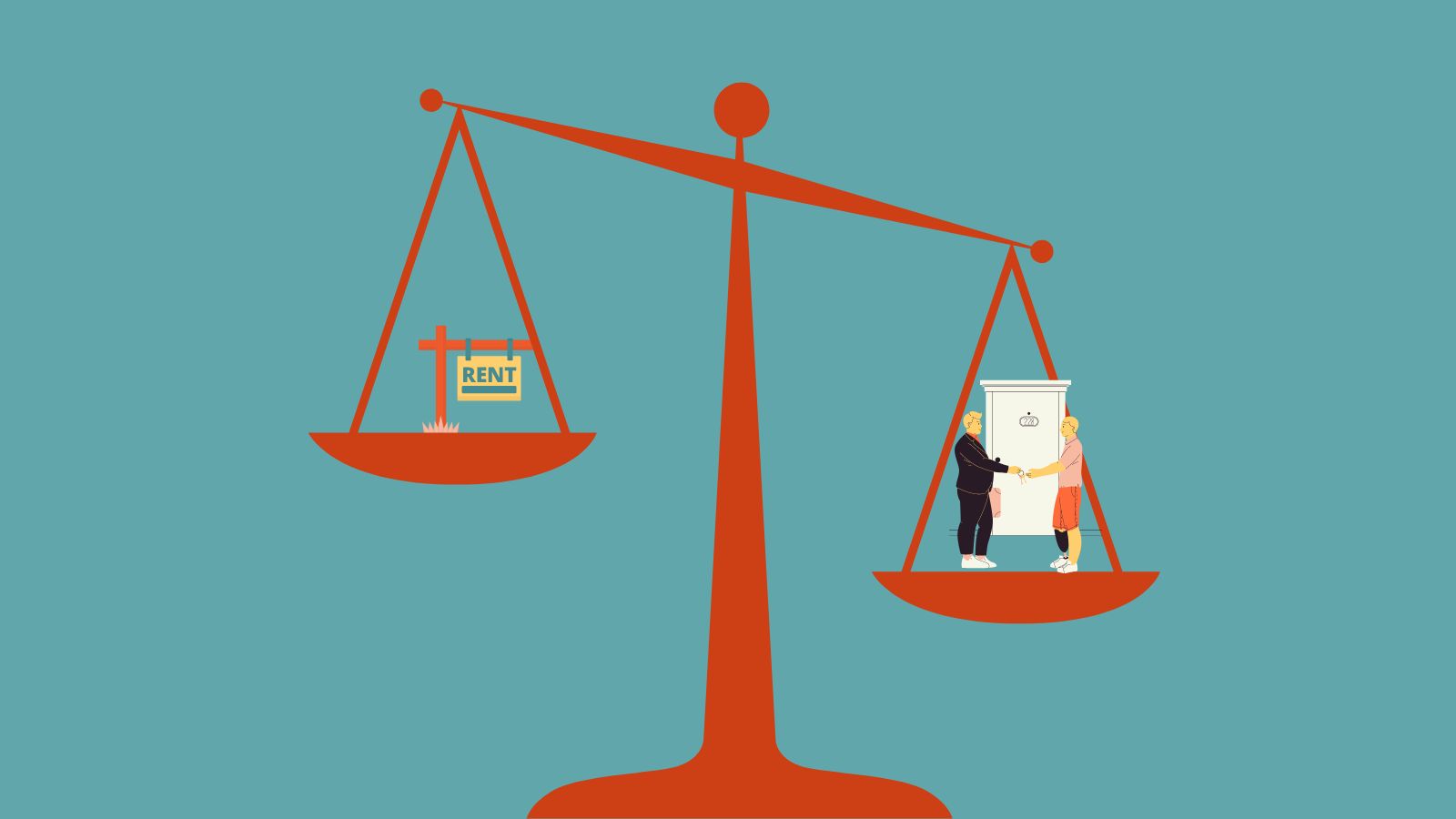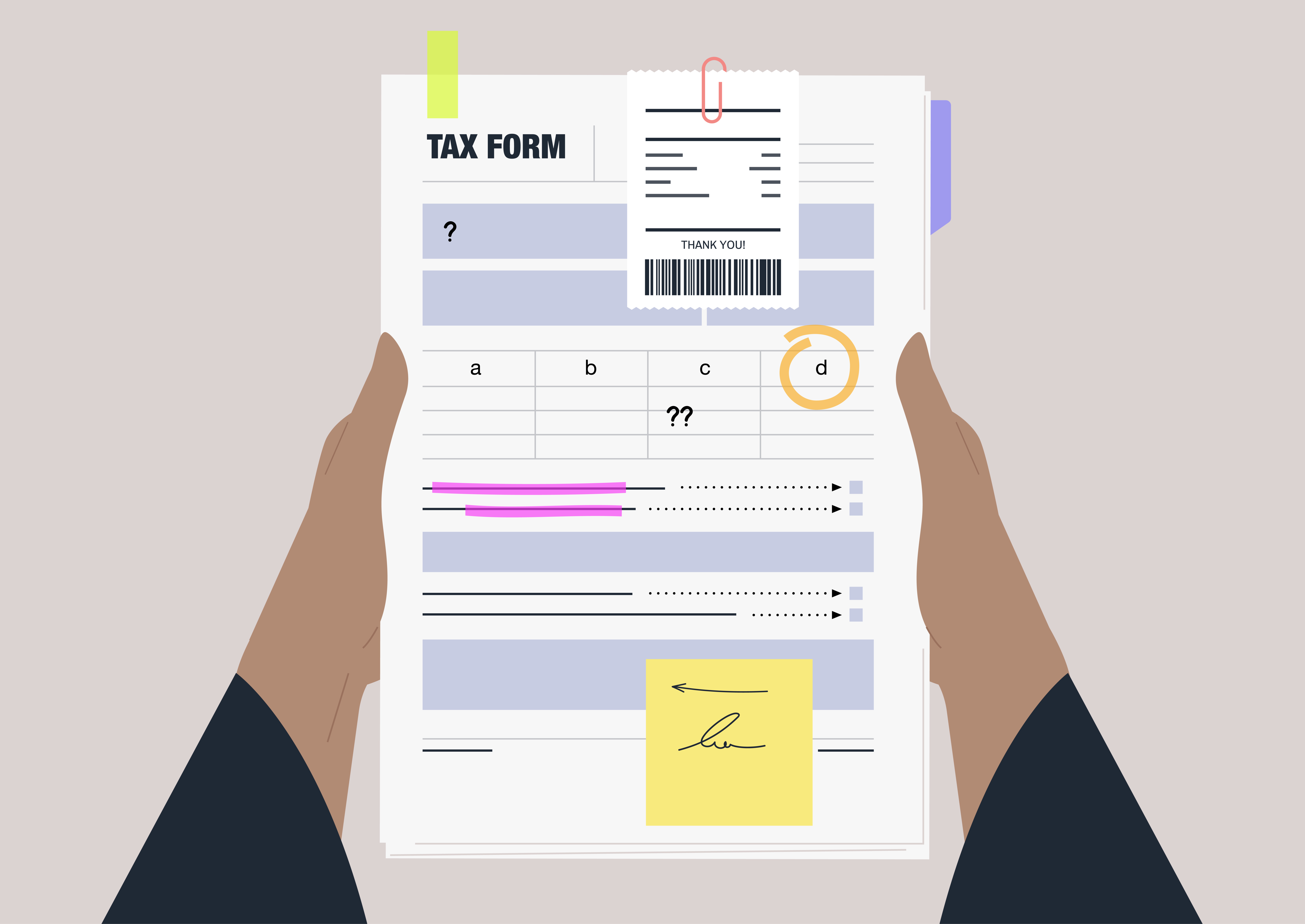What is a reverse mortgage?
And should you get one?


A free daily email with the biggest news stories of the day – and the best features from TheWeek.com
You are now subscribed
Your newsletter sign-up was successful

A reverse mortgage can give older homeowners the funds they need to help cover their costs of living. While this can certainly sound like a good deal, there's a lot to consider before taking the plunge. Here's a look at how reverse mortgages work, who's eligible, and who should (and probably shouldn't) get one.
Reverse mortgages, explained
A reverse mortgage is a type of loan that allows you to "tap your home's equity," Kiplinger explains. Let's say you've invested a lot of money in your home through mortgage payments — either you own outright, or have paid off most of the mortgage — and therefore you have equity. If you're planning to sell your home and downsize, that equity is very useful. But if you plan to stay in your home, as many seniors wish to do, having your net-worth tied up in equity can be limiting. That's where reverse mortgages come in: The borrower already owns the home, and they're borrowing against it while retaining title and ownership of the house. Think of it as "a conventional mortgage where the roles are switched," explains Forbes. The bank will give you money upfront and then you'll eventually pay back that borrowed amount (known as the principal), plus interest.
The difference between a traditional mortgage and a reverse mortgage is that the borrower won't pay interest throughout the loan's term. Instead, the principal and interest will come due all at once at the end of the loan's term. Because of this delayed payback date, reverse mortgage loans often aren't repaid by the borrower; the borrower's heirs often sell the property to pay off the loan after the borrower either moves or passes away.
The Week
Escape your echo chamber. Get the facts behind the news, plus analysis from multiple perspectives.

Sign up for The Week's Free Newsletters
From our morning news briefing to a weekly Good News Newsletter, get the best of The Week delivered directly to your inbox.
From our morning news briefing to a weekly Good News Newsletter, get the best of The Week delivered directly to your inbox.
Reverse mortgages are most commonly issued through government-insured programs, with the most popular type being the Home Equity Conversion Mortgage (HECM), which is backed by the Federal Housing Administration. Private lenders may offer reverse mortgages, but these aren't federally insured and are likelier to expose the borrower to scams, per Forbes.
Who can get a reverse mortgage?
They are only available to homeowners who are at least 62 years old. Borrowers have to meet other requirements, according to the Consumer Finance Protection Bureau. They must:
- live in the home they're borrowing against
- either own the home outright or have a low balance on the mortgage, which they will need to pay off when they close on the reverse mortgage
- not owe any federal debt
- keep their home in good condition
- get counseling from a reverse mortgage counseling agency that's approved by the United States Department of Housing and Urban Development (HUD)
There's also an application process. The bank will want to make sure you have enough equity in your house and that you have sufficient funds to keep paying costs like property taxes, homeowner's insurance, homeowner association fees, and general upkeep of the property.
When you apply via links on our site, we may earn an affiliate commission
A free daily email with the biggest news stories of the day – and the best features from TheWeek.com
How much can you borrow with a reverse mortgage?
That depends on interest rates, your age, and the appraised value of your home or the HECM mortgage limit, whichever is lower. According to Kiplinger, "[g[enerally, the older you are, the lower the interest rate, and the higher the house value, the more money you'll be able to tap." Note that it's not possible to tap all of the equity in your home.
You can receive the funds as a one-time lump sum, through monthly payouts, or via a line of credit. You also have the option to use a combination of these methods.
What are the costs involved?
There are a number of noteworthy costs associated with reverse mortgages:
The costs are usually rolled into the mortgage, meaning borrowers won't have to pay them out of pocket — though this does reduce the loan amount available to them. And the costs can certainly add up. According to LendingTree, "reverse mortgages are more expensive than other home loan types."
Should you get a reverse mortgage?
To figure out if a reverse mortgage is right for you, "start by thinking about what you plan to do with the proceeds," Kiplinger says. If you want to stay in your home as you get older rather than moving to assisted living, for instance, then a reverse mortgage could make sense. You might also consider a reverse mortgage to help cover costs during a market downturn, or if you need additional income during retirement.
If you have heirs you'd like to inherit your property, however, you might want to think twice, LendingTree explains. The same goes if you have family members who live with you and need to stay in the home after the term of the reverse mortgage ends. A reverse mortgage also might not be the right choice if you're planning to move soon, or if your health is uncertain.
There are other potential downsides. For example: You could face foreclosure if you don't keep up with taxes, insurance, or maintenance; you could use up all of your home's equity, making it unavailable later; you may need to sell your house to get out of the loan; and your principal will keep increasing over time as fees and interest get added to the loan.
You'll want to weigh the pros and cons before proceeding. While a reverse mortgage can help you stay in your home longer, bolster your retirement funds, and pay off debt, it's also important to consider the full financial picture.
Becca Stanek has worked as an editor and writer in the personal finance space since 2017. She has previously served as the managing editor for investing and savings content at LendingTree, an editor at SmartAsset and a staff writer for The Week. This article is in part based on information first published on The Week's sister site, Kiplinger.com
Becca Stanek has worked as an editor and writer in the personal finance space since 2017. She previously served as a deputy editor and later a managing editor overseeing investing and savings content at LendingTree and as an editor at the financial startup SmartAsset, where she focused on retirement- and financial-adviser-related content. Before that, Becca was a staff writer at The Week, primarily contributing to Speed Reads.
-
 The environmental cost of GLP-1s
The environmental cost of GLP-1sThe explainer Producing the drugs is a dirty process
-
 Nuuk becomes ground zero for Greenland’s diplomatic straits
Nuuk becomes ground zero for Greenland’s diplomatic straitsIN THE SPOTLIGHT A flurry of new consular activity in Nuuk shows how important Greenland has become to Europeans’ anxiety about American imperialism
-
 ‘This is something that happens all too often’
‘This is something that happens all too often’Instant Opinion Opinion, comment and editorials of the day
-
 A guide to cashing out your retirement accounts
A guide to cashing out your retirement accountsSpeed Read Does order matter? What's the best strategy for taxes?
-
 4 REITs to watch
4 REITs to watchSpeed Read A selection of real estate investment trusts with "exceptional pricing power"
-
 What is 'lifestyle inflation' and how does it limit wealth?
What is 'lifestyle inflation' and how does it limit wealth?Speed Read More money, more problems? Not necessarily.
-
 How to get a mortgage if you're retired
How to get a mortgage if you're retiredSpeed Read If you're considering applying for a mortgage in retirement, here's a look at what to expect, as well as some tips for making the process less painful
-
 How to free yourself from credit card debt
How to free yourself from credit card debtSpeed Read Has your balance gotten out of control? Personal finance experts have some solid tips and tricks to help you get on top of your credit card debt.
-
 Renters' rights, explained
Renters' rights, explainedSpeed Read The Biden administration announced new federal actions to protect tenants as rent prices continue to climb. What rights do renters have already?
-
 A smart guide to ESG investing
A smart guide to ESG investingSpeed Read Some say ESG investing is better for the planet. But is it good for your wallet, too?
-
 7 tax breaks that could save you money
7 tax breaks that could save you moneySpeed Read Brush up on these tax breaks before you file to make sure you're not overpaying
